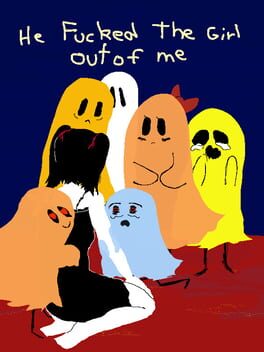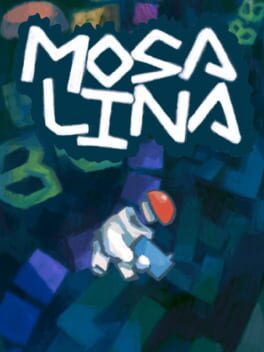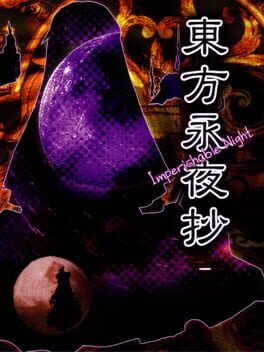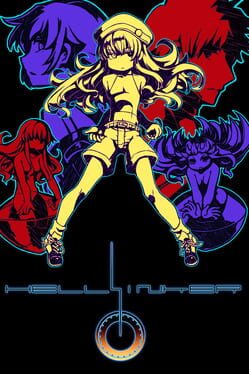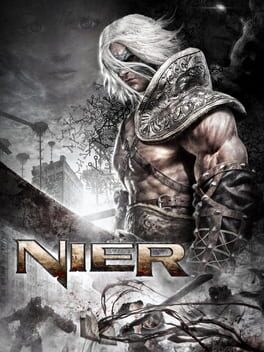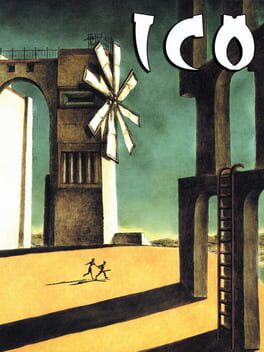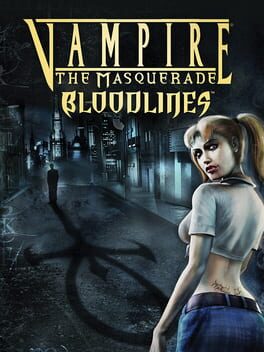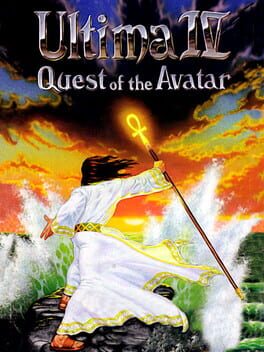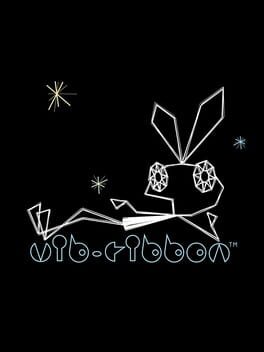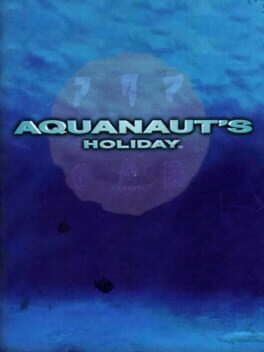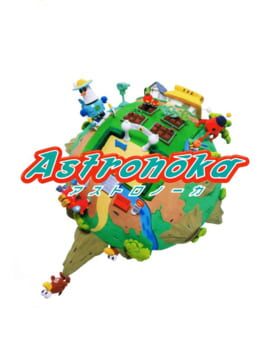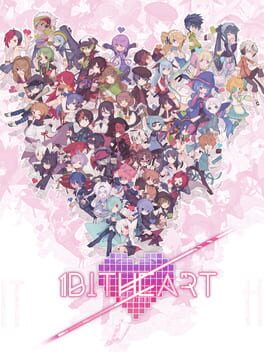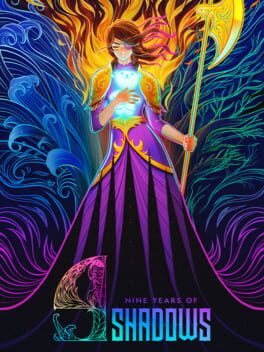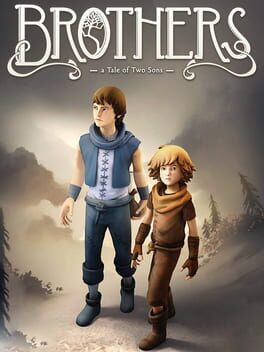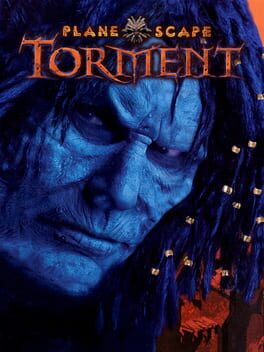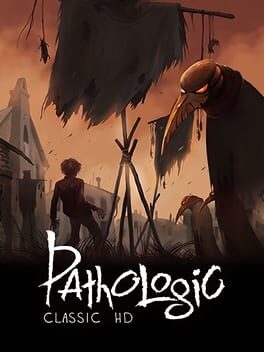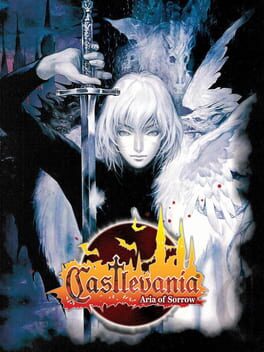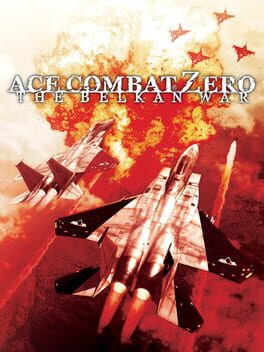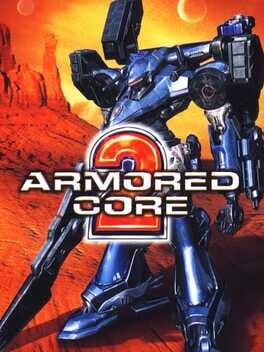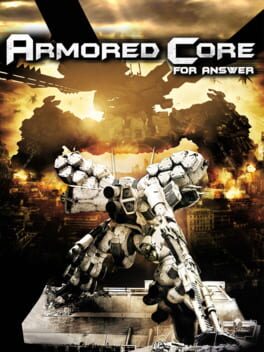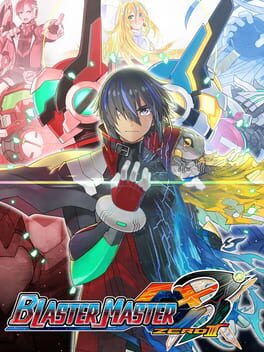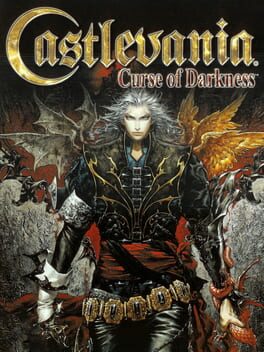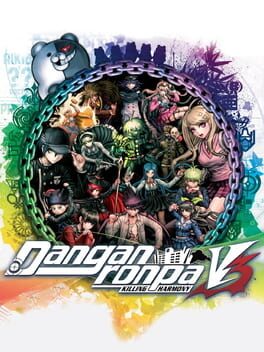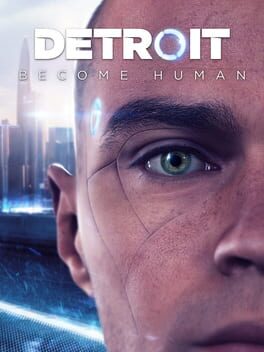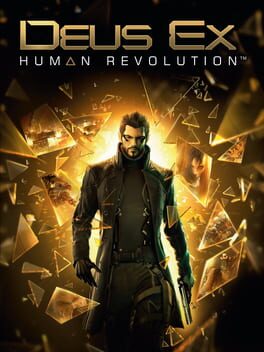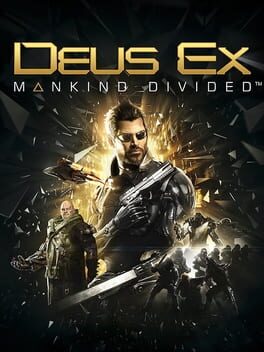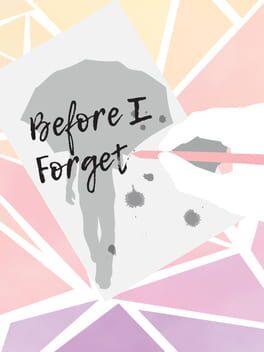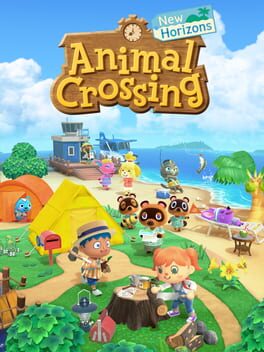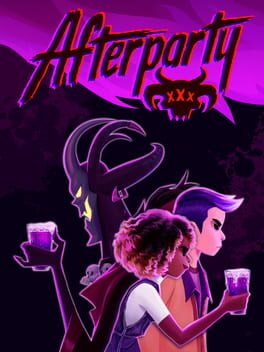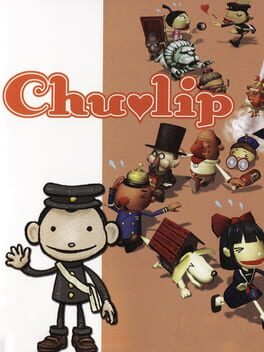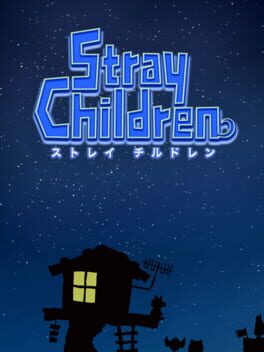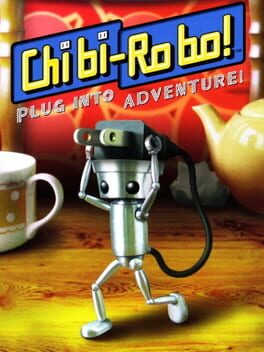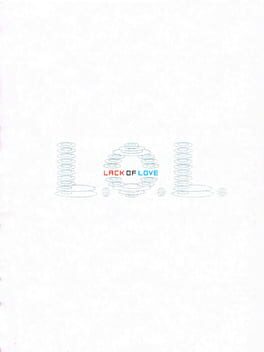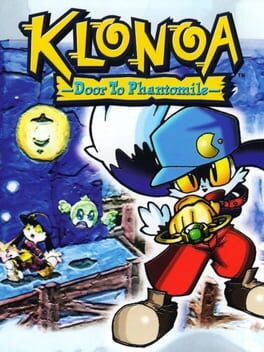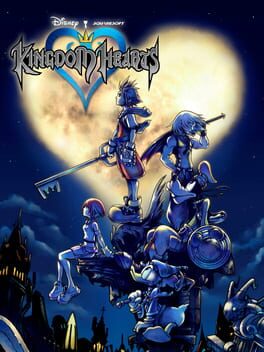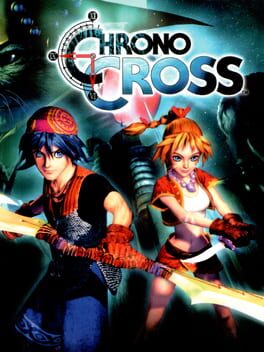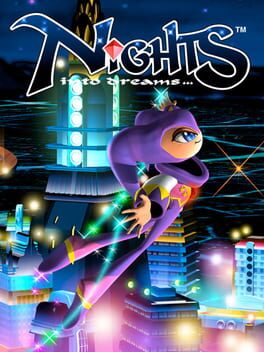Batt
72 reviews liked by Batt
I think I literally cannot cover this experience with all of the respect and nuances it deserves. Is less of a game and more of a retellling of the horrors a transgender woman had to go through. Is utterly devastating, and I found it very hard to even give it a star puntiation, 'cause this is not an experience I can quantify in the slightiest.
Sometimes I'm blind to the terrible experiences that other people had to suffer and continue to suffer, and its works like this, so beoutiful yet so painful, that open my eyes in a lot of ways.
''There was no dramatic music, nothing changed. I felt the exact way as I fel before.''
But in my parcial blindness, one thing I do understand is trauma, a feeling that eats from the inside out, a silent pain that makes you belive that there's no hope, but there is, and it's neccesary to make pain not silent, to make it heared to our loved ones... sometimes this can make them push them away, neglect us because of our hardships that we had no control over, but a lot will stay by our side, and we must do this to move forward, 'cause we have to live life, because it's worth living. There we will not be music as we all live this, no dramatic tracks, just a sensation of empiteness slowly feeling in, sometimes it will empty a little again, but in the end, it will heal.
I may have no say in this matter at all in the first place, since I'm not trans nor a sex worker and by that this horrible experience will never hit me as hard as someone that had the misfortune to live it, but I still do understand the pain, I understand the feeling of moving on.
I'm glad the creator did this. I'm glad that this little 30 minute retelling exists only as a way for her to cope. I hope she is ok.
Sometimes I'm blind to the terrible experiences that other people had to suffer and continue to suffer, and its works like this, so beoutiful yet so painful, that open my eyes in a lot of ways.
''There was no dramatic music, nothing changed. I felt the exact way as I fel before.''
But in my parcial blindness, one thing I do understand is trauma, a feeling that eats from the inside out, a silent pain that makes you belive that there's no hope, but there is, and it's neccesary to make pain not silent, to make it heared to our loved ones... sometimes this can make them push them away, neglect us because of our hardships that we had no control over, but a lot will stay by our side, and we must do this to move forward, 'cause we have to live life, because it's worth living. There we will not be music as we all live this, no dramatic tracks, just a sensation of empiteness slowly feeling in, sometimes it will empty a little again, but in the end, it will heal.
I may have no say in this matter at all in the first place, since I'm not trans nor a sex worker and by that this horrible experience will never hit me as hard as someone that had the misfortune to live it, but I still do understand the pain, I understand the feeling of moving on.
I'm glad the creator did this. I'm glad that this little 30 minute retelling exists only as a way for her to cope. I hope she is ok.
Mosa Lina
2023
For the longest time, I thought that the prevalent issue weighing down roguelites/likes was excessive RNG. Later on, I slightly adjusted my stance: RNG was okay, but a lack of player control to combat any unexpected changes as a result of RNG was not. In one fell swoop, Mosa Lina has neatly proven both of those issues to be mere symptoms of the root cause: modern roguelites/likes overemphasize the macro over the micro.
This problem I think, stems from the genre's overreliance upon meta-progression and run investment. While these would at first appear to be opposite ends of the spectrum (after all, meta-progression often relies upon you throwing away successive runs to gain some kind of advantage/pass certain checks), they both point to the same core issue of ultimately not respecting the player's time. In the former case, the moment-to-moment gameplay often isn't interesting enough to sustain a run. In the latter, the player either succeeds with the "god-run" and has to chase the high through more grinding all over again, or throws it all away due to mistakes/RNG and feels like absolute shit, lamenting what could have been with their hours spent, just inches away from the finish line.
Mosa Lina doesn't fall victim to this, because it was never about winning in the first place. There's no end to the game: the core concept infinitely loops and you'll never hit the credits roll unless you decide to manually mash through them in the pause menu. There's a scoring system in place, but the descriptions themselves often mock how points are handed out arbitrarily. On top of this, there's no meta-progression whatsoever because practically everything is unlocked and randomized from the start: you've got three randomized toys to play with out of a pool of nine randomly selected for the particular loop out of 21 possible toys, and if nothing works (which the game outright warns you will happen), just reroll until something sticks.
As a result, the game solves two problems at once: the aforementioned issue of filling up a player's time with weak moment-to-moment gameplay, and the classic issue of "lock-and-key" solutions creating linear puzzles that lack replayability. Although the game characterizes itself as "a hostile interpretation of the immersive sim," I find it to be more indifferent if anything. It doesn't guide you towards solutions, it never provides any incentives for finding solutions, and it never even bothers to explain its underlying mechanics aside from listing the control scheme and being forthright with its unpredictability. Yet by doing so, it sets itself up as the perfect player-driven sandbox. The difficulty and learning curve is entirely up to you; sure the types of tools are randomized, but half of the battle is figuring out what to do with the tool combinations given and exploiting the game's floaty gravity and set pieces with your heavy character and tight jump. If you can't succeed, a refresh is just seconds away!
I don't think I've yelled so much at a video game since my high school days of grinding Dota 2 (a very dark period in my life, I'm aware). However, these were not yells of frustration or exasperation in the slightest. No, this was me shouting in excitement every time something batshit crazy happened on screen (read: pretty damn often). Sometimes the game really does ask for the seemingly impossible with huge gaps to cross/jump and absolutely garbage or ill-fitting tools that I can't even say feel balanced at times; I swear the fish have been useless in 80% of their appearances. That's what makes it so damn enthralling though: savoring the thrill of discovery when I learned how to bomb-jump in mid-air by properly timing my placements, or somehow finagling a solution by pushing and juggling around some crazy contraptions made of dead frogs, some wire, and a ladder. The possibilities felt endless, and while I do have some critique for the initially unintuitive aiming (you shoot upwards/downwards at a 75 degree angle from the horizontal and can't fine-tune your trajectory any further), this game really is the full and realized package it claims to be despite (or perhaps as a result of!) its lack of excessive streamlining. With Level Editor updates on the way, I can 100% see myself returning to mess around more in the future. I'm nothing but pleased as punch that a game which wasn't even on my radar has sufficiently blown me away: in a year of flashy major releases and tired conventions, Mosa Lina pulls back the curtain to reveal that the basics are all you need for a good show after all.
This problem I think, stems from the genre's overreliance upon meta-progression and run investment. While these would at first appear to be opposite ends of the spectrum (after all, meta-progression often relies upon you throwing away successive runs to gain some kind of advantage/pass certain checks), they both point to the same core issue of ultimately not respecting the player's time. In the former case, the moment-to-moment gameplay often isn't interesting enough to sustain a run. In the latter, the player either succeeds with the "god-run" and has to chase the high through more grinding all over again, or throws it all away due to mistakes/RNG and feels like absolute shit, lamenting what could have been with their hours spent, just inches away from the finish line.
Mosa Lina doesn't fall victim to this, because it was never about winning in the first place. There's no end to the game: the core concept infinitely loops and you'll never hit the credits roll unless you decide to manually mash through them in the pause menu. There's a scoring system in place, but the descriptions themselves often mock how points are handed out arbitrarily. On top of this, there's no meta-progression whatsoever because practically everything is unlocked and randomized from the start: you've got three randomized toys to play with out of a pool of nine randomly selected for the particular loop out of 21 possible toys, and if nothing works (which the game outright warns you will happen), just reroll until something sticks.
As a result, the game solves two problems at once: the aforementioned issue of filling up a player's time with weak moment-to-moment gameplay, and the classic issue of "lock-and-key" solutions creating linear puzzles that lack replayability. Although the game characterizes itself as "a hostile interpretation of the immersive sim," I find it to be more indifferent if anything. It doesn't guide you towards solutions, it never provides any incentives for finding solutions, and it never even bothers to explain its underlying mechanics aside from listing the control scheme and being forthright with its unpredictability. Yet by doing so, it sets itself up as the perfect player-driven sandbox. The difficulty and learning curve is entirely up to you; sure the types of tools are randomized, but half of the battle is figuring out what to do with the tool combinations given and exploiting the game's floaty gravity and set pieces with your heavy character and tight jump. If you can't succeed, a refresh is just seconds away!
I don't think I've yelled so much at a video game since my high school days of grinding Dota 2 (a very dark period in my life, I'm aware). However, these were not yells of frustration or exasperation in the slightest. No, this was me shouting in excitement every time something batshit crazy happened on screen (read: pretty damn often). Sometimes the game really does ask for the seemingly impossible with huge gaps to cross/jump and absolutely garbage or ill-fitting tools that I can't even say feel balanced at times; I swear the fish have been useless in 80% of their appearances. That's what makes it so damn enthralling though: savoring the thrill of discovery when I learned how to bomb-jump in mid-air by properly timing my placements, or somehow finagling a solution by pushing and juggling around some crazy contraptions made of dead frogs, some wire, and a ladder. The possibilities felt endless, and while I do have some critique for the initially unintuitive aiming (you shoot upwards/downwards at a 75 degree angle from the horizontal and can't fine-tune your trajectory any further), this game really is the full and realized package it claims to be despite (or perhaps as a result of!) its lack of excessive streamlining. With Level Editor updates on the way, I can 100% see myself returning to mess around more in the future. I'm nothing but pleased as punch that a game which wasn't even on my radar has sufficiently blown me away: in a year of flashy major releases and tired conventions, Mosa Lina pulls back the curtain to reveal that the basics are all you need for a good show after all.
Mosa Lina
2023
How do you even begin to quantify the infinite?
How do you defeat the unbeatable?
How do you reach the end of the impossible?
Mosa Lina’s premise seems like one you would make in some kind of parody: a experience that seeks to be basically infinite, where RNG has such a presence that sometimes it can be completely unbeatable, failure is basically guaranteed at some point and your arsenal is also completely limited by luck itself. It describes itself as an ‘’hostile’’ interpretation of the immersive sim, but that would be an understatement; there’s no real level design, there are some set structures the game may apply to levels, but other than that absolutely nothing is planned. You have nothing but yourself.
It should be barely more than a joke, a proof of concept put out to be played and maybe laughed with by other people, a experiment without much substance that while absolutely commendable, wouldn’t be memorable in the long run.
And yet, here we are.
If you where to ask me ‘’What is Mosa Lina similar to?’’, it’d literally impossible to start comparing beyond the most superficial level; it visually reminds me of Gonner with all the head-weapon thing, and… yeah, that’d be pretty much it. This is no simple ‘’oh, the game is very original and doesn’t lift many ideas from others’’ or ‘’takes a bunch of concepts and makes something new!’’ type of thing, it’s that I’ve never seen or played something that comes close to being what Mosa Lina is, to do what it dares to do. The ‘’Rogue-Like/Lite’’ space gets a ton of criticism with how stagnate it has gotten and how it’s been oversaturated with titles reach the level of greatness the best titles in the genre do, and if that wasn’t enough, now this game arrives, and it puts the supposed premise of ‘’infinity’’ that some of those best works in question proclaim to have into questioning. I don’t even think that calling it an immersive sim’’, as the game presents itself, would be entirely correct; you don’t really get to interact with the levels beyond what your three available weapons let you, and even if that’s not exactly a small level of interaction, it’s yet another showcase of how impossible to catalogue this game into a proper category really is.
But all of this shouldn’t really mean anything, even if it had the best of ideas, that wouldn’t mean a lot if the execution was jarring; like I said at the beginning, it would be a respectable effort for sure, but not much more… but we are not living in such a scenario.
Nine levels.
Nine weapons for each selection.
And the magic… you make it happen.
After a pretty basic tutorial, you are thrown into Mosa Lina, and its up to you to really find how it works. Each of the ‘’weapons’’ acts completely from one another, but none feel useless; some might* be completely ineffective in certain scenarios, but they do not feel like a burden. Be it shooting boxes, squares, manipulating gravity or giving life to frogs with no neurons, these solutions are given to you, but not necessarily because they are the solution to a problem, because there’s never a real solution.
You fail. You retry. You fail. You win. You fail. You retry. You fail. You retry. You fail. You reroll and try your luck again. Each of these decisions, and what happens inside each level, it’s entirely your own, the game only goes as far to give you genius unpredictable scenarios, and the rest it’s up to you. There are times where it’ll be easy. Others you’ll be pondering and retrying for a while before finally nailing it down. Others aren’t possible with your current tools. And other times you may just get lucky. In all these possibilities, in all of these outcomes, it all feels earned, interesting and gratifying, even when al level is, by all accounts, unfair. And you keep pushing, and I kept pushing, because it made me feel pure wonder and awe, I wanted to keep experimenting, trying crazy stuff and managing to do it; it’s the ‘’Possibility Space’’ brought to its most insane result, a game that lets you to defy the impossible.
With each reset and each set of levels beaten, you keep moving forward in the null space, and you keep going, and going, and I kept going, and going, to see what lied at the end of the path, to see what I normally could never see. But at the end of the line there’s nothing, no ending, no reward, not even the credits: there’s nothing, and even if I should have felt a bit mad or disappointed, it couldn’t further from the truth, and I couldn’t think of anything more fitting. This is not a experience about a result, it’s about all of them, all of the little adventures, the steps at learning and sharing, at just feeling at peace if something doesn’t work or it can work. It doesn’t matter, there’s always another time to have another chance, and that’s fine. And I did it. And I kept coming back. And even with it’s fairly simple surface, I still find new ways to be surprised or feel that feeling of fun and creativeness sparking in my mind. And I utterly love it.
Even if it doesn’t click with you, even if you end up disliking it, I implore you to give it a try; it’s has the bravery to be unbeatable yet manages to be fun and infinitely replayable, it’s everything and it’s nothing both at the same time.
It’s the infinity.
And I adore it.
How do you defeat the unbeatable?
How do you reach the end of the impossible?
Mosa Lina’s premise seems like one you would make in some kind of parody: a experience that seeks to be basically infinite, where RNG has such a presence that sometimes it can be completely unbeatable, failure is basically guaranteed at some point and your arsenal is also completely limited by luck itself. It describes itself as an ‘’hostile’’ interpretation of the immersive sim, but that would be an understatement; there’s no real level design, there are some set structures the game may apply to levels, but other than that absolutely nothing is planned. You have nothing but yourself.
It should be barely more than a joke, a proof of concept put out to be played and maybe laughed with by other people, a experiment without much substance that while absolutely commendable, wouldn’t be memorable in the long run.
And yet, here we are.
If you where to ask me ‘’What is Mosa Lina similar to?’’, it’d literally impossible to start comparing beyond the most superficial level; it visually reminds me of Gonner with all the head-weapon thing, and… yeah, that’d be pretty much it. This is no simple ‘’oh, the game is very original and doesn’t lift many ideas from others’’ or ‘’takes a bunch of concepts and makes something new!’’ type of thing, it’s that I’ve never seen or played something that comes close to being what Mosa Lina is, to do what it dares to do. The ‘’Rogue-Like/Lite’’ space gets a ton of criticism with how stagnate it has gotten and how it’s been oversaturated with titles reach the level of greatness the best titles in the genre do, and if that wasn’t enough, now this game arrives, and it puts the supposed premise of ‘’infinity’’ that some of those best works in question proclaim to have into questioning. I don’t even think that calling it an immersive sim’’, as the game presents itself, would be entirely correct; you don’t really get to interact with the levels beyond what your three available weapons let you, and even if that’s not exactly a small level of interaction, it’s yet another showcase of how impossible to catalogue this game into a proper category really is.
But all of this shouldn’t really mean anything, even if it had the best of ideas, that wouldn’t mean a lot if the execution was jarring; like I said at the beginning, it would be a respectable effort for sure, but not much more… but we are not living in such a scenario.
Nine levels.
Nine weapons for each selection.
And the magic… you make it happen.
After a pretty basic tutorial, you are thrown into Mosa Lina, and its up to you to really find how it works. Each of the ‘’weapons’’ acts completely from one another, but none feel useless; some might* be completely ineffective in certain scenarios, but they do not feel like a burden. Be it shooting boxes, squares, manipulating gravity or giving life to frogs with no neurons, these solutions are given to you, but not necessarily because they are the solution to a problem, because there’s never a real solution.
You fail. You retry. You fail. You win. You fail. You retry. You fail. You retry. You fail. You reroll and try your luck again. Each of these decisions, and what happens inside each level, it’s entirely your own, the game only goes as far to give you genius unpredictable scenarios, and the rest it’s up to you. There are times where it’ll be easy. Others you’ll be pondering and retrying for a while before finally nailing it down. Others aren’t possible with your current tools. And other times you may just get lucky. In all these possibilities, in all of these outcomes, it all feels earned, interesting and gratifying, even when al level is, by all accounts, unfair. And you keep pushing, and I kept pushing, because it made me feel pure wonder and awe, I wanted to keep experimenting, trying crazy stuff and managing to do it; it’s the ‘’Possibility Space’’ brought to its most insane result, a game that lets you to defy the impossible.
With each reset and each set of levels beaten, you keep moving forward in the null space, and you keep going, and going, and I kept going, and going, to see what lied at the end of the path, to see what I normally could never see. But at the end of the line there’s nothing, no ending, no reward, not even the credits: there’s nothing, and even if I should have felt a bit mad or disappointed, it couldn’t further from the truth, and I couldn’t think of anything more fitting. This is not a experience about a result, it’s about all of them, all of the little adventures, the steps at learning and sharing, at just feeling at peace if something doesn’t work or it can work. It doesn’t matter, there’s always another time to have another chance, and that’s fine. And I did it. And I kept coming back. And even with it’s fairly simple surface, I still find new ways to be surprised or feel that feeling of fun and creativeness sparking in my mind. And I utterly love it.
Even if it doesn’t click with you, even if you end up disliking it, I implore you to give it a try; it’s has the bravery to be unbeatable yet manages to be fun and infinitely replayable, it’s everything and it’s nothing both at the same time.
It’s the infinity.
And I adore it.
Le jeu qui t'invite à la fin à toucher de l'herbe te le fait comprendre un peu trop rapidement en ne respectant peut-être pas assez le temps du joueur.
On lui pardonne beaucoup car le charme du jeu est unique et l'experience avant gardiste inspira beaucoup.
Très hâte de voir le prochain jeu du studio qui ne partagera peut-être pas les défauts de Moon
On lui pardonne beaucoup car le charme du jeu est unique et l'experience avant gardiste inspira beaucoup.
Très hâte de voir le prochain jeu du studio qui ne partagera peut-être pas les défauts de Moon
This isn’t a joke. This isn’t a meme. This isn’t a copypasta or some stupid shit. This is a genuine cry for help. I can’t listen to anything but touhou music. At first I thought it was just video game music, or instrumental music, but no; even other game songs that I used to love are meaningless to me now. Songs from when I was a child, songs that previously had genuine emotional meaning and were attached to precious memories, are utterly worthless to me now – and I can’t enjoy any new music, either.
It’s not even that “mOdErN mUsIc iS bAd,” I mean I literally can’t reprogram my brain to pump out even the slightest amount of dopamine – or frankly any other chemical – at the sound and experience of music I’ve never heard before. Bands and musicians that are almost universally well-regarded for music that will be remembered throughout human history, and perhaps even afterwards, just sound like blank noise to me. I tried listening to Queen and had to stop because my stomach acids started boiling and I felt a migraine coming.
It’s not even just a matter of genre. I listen to remixes of touhou tracks of all kinds of genres, with and without lyrics, and I love every single solitary second of it. The sheer ecstasy that the climax of Starry Mountain of Tenma brings me is unrivaled by even my most tender and intimate memories.
My emotions are entirely controlled by what touhou song is currently playing, either out loud or in my head – and if I’m forced to hear any other kind of music in a public setting, like the playlist my bosses run at the restaurant I work at, my mental state gradually deteriorates until I’m forced to listen to fucking Cirno’s Perfect Math Class lest I suffer a complete mental breakdown in public. I was caught in my car after work singing Lyrica Live’s cover of Necrofantasia by the guy I have a crush on, and I nearly drove my car into the fucking ocean. I think he might’ve been recording me. It hasn’t been brought up by any of my coworkers but that doesn’t mean they don’t know.
My friends have desperately tried to pull me out, to introduce me to other genres, I even joined a fucking punk rock band for a little bit in the hopes that it’d recondition my brain, but I just found myself drumming the solos from Pristine Beat and Sailor of Time in every song we played. Nobody even noticed, they thought I came up with it on the fly, they called me a professional drummer in the making, but I knew I was just a hack.
I even hear touhou music in my fucking dreams. Literally, just last night I had a dream in which was hosting a fancy yacht party with all my friends and I could perfectly hear Jynx’s remaster of Plastic Mind blaring in the background, the ZUNpets pouring into the very ethereal essence of my soul as the dreamscape laid my inner desires bare.
I’m listening to 17.5’s version of Egoistic Flowers as I write this; I can feel Allah’s love coursing through me. Maybe he’ll take pity on me – for no other god seems to care.
It’s not even that “mOdErN mUsIc iS bAd,” I mean I literally can’t reprogram my brain to pump out even the slightest amount of dopamine – or frankly any other chemical – at the sound and experience of music I’ve never heard before. Bands and musicians that are almost universally well-regarded for music that will be remembered throughout human history, and perhaps even afterwards, just sound like blank noise to me. I tried listening to Queen and had to stop because my stomach acids started boiling and I felt a migraine coming.
It’s not even just a matter of genre. I listen to remixes of touhou tracks of all kinds of genres, with and without lyrics, and I love every single solitary second of it. The sheer ecstasy that the climax of Starry Mountain of Tenma brings me is unrivaled by even my most tender and intimate memories.
My emotions are entirely controlled by what touhou song is currently playing, either out loud or in my head – and if I’m forced to hear any other kind of music in a public setting, like the playlist my bosses run at the restaurant I work at, my mental state gradually deteriorates until I’m forced to listen to fucking Cirno’s Perfect Math Class lest I suffer a complete mental breakdown in public. I was caught in my car after work singing Lyrica Live’s cover of Necrofantasia by the guy I have a crush on, and I nearly drove my car into the fucking ocean. I think he might’ve been recording me. It hasn’t been brought up by any of my coworkers but that doesn’t mean they don’t know.
My friends have desperately tried to pull me out, to introduce me to other genres, I even joined a fucking punk rock band for a little bit in the hopes that it’d recondition my brain, but I just found myself drumming the solos from Pristine Beat and Sailor of Time in every song we played. Nobody even noticed, they thought I came up with it on the fly, they called me a professional drummer in the making, but I knew I was just a hack.
I even hear touhou music in my fucking dreams. Literally, just last night I had a dream in which was hosting a fancy yacht party with all my friends and I could perfectly hear Jynx’s remaster of Plastic Mind blaring in the background, the ZUNpets pouring into the very ethereal essence of my soul as the dreamscape laid my inner desires bare.
I’m listening to 17.5’s version of Egoistic Flowers as I write this; I can feel Allah’s love coursing through me. Maybe he’ll take pity on me – for no other god seems to care.
HellSinker
2007
100% achievements.
November 6th, 2023, marks the day I would begin my journey of playing Hellsinker. 5 months and a day to be exact. With interest spawning from a stray suggestion by a friend of mine, this would quickly result in an obsessive play-through which then graduated to an obsessive achievement hunt which would THEN go on infiltrate my personal life via absolutely wreaking havoc on my sleep schedule, even hijacking my dreams.
And I couldn't be more thankful.
Quite honestly, I'm not sure where to take this review, I'll let my fingers glide along the keyboard and post whatever crops up.
At 89.1 hours, Hellsinker sits comfortably at my #5 most played game on Steam. Despite this, I've only gone on to engage with the game in its entirety through the lens of 1 character. The game features 4 characters, 1 of which has 4 "Ordinance Packages" which change up their loadout. Essentially, this 1 character is 4 though their endings remain the same between loadouts. This leaves me with a staggering 1/7 true completion. In addition to this, each character does have a unique ending depending on their TLB progression, not viewable within the game's text sequence viewer. Though I've already gone ahead and watched a video showing their contents (SPOILERS (DUH!)), I'd still love to play the game to experience them firsthand.
Alright, what more is there left for me do? Surely after that I would have completed EVERYTHING there is to this game... right?
WRONG! THERE'S SO MUCH! THERE'S QUITE FRANKLY TOO MUCH! AND I THINK THE FUNNIEST PART HAS TO BE HOW ABSOLUTELY UNINTENDED MOST OF THE EXTRA STUFF IS!
I'll start by introducing this game's older sibling, Radio Zonde. Yes, I have played the game before, but I haven't really completed in a manner I find acceptable, so there's still this entire game for me to play. Much of the ideas regarding design both graphics and gameplay are very much seen within Hellsinker. 1CC for Radio Zonde TBD.
Following this game would then come Hellsinker but in the form of a demo, kinda? Colloquially the build is known as Hellsinker 0.95. This build is quite.... special. There's a bajillion changes from this version of the game to the Doujin and Steam releases and although I'd like to talk about them all day I'll spare this "review" the word count and cut to the main thing. This game, although presenting itself as a demo, actually holds within itself the entire game but more importantly the final stage(SPOILERS(AGAIN(DUH!))) accessible through dropping in some files graciously provided by the original poster. In a non-patched version, only stages 1-4 are playable. The cut special stages also feature 2 versions from what I understand looking at the channel. One version would then go on to become the Shrine seen in the Doujin and Steam release. The other version cut from the final releases feature something adjacent to a dungeon crawler style level (not spoilers).
Okay so. That's it right? Nothing more? There couldn't possibly be more?
But there is! All of these are from the game's Doujin release era (so like 2007-2011?) I'll tally up everything here:
>Doujin release (PURCHASED)
>Completion of said Doujin release (unsure if I'll do all characters TLB but I'll cross that bridge when I get there)
>Buying the fanzines (warning the page probably has some Not Safe For Work Ads so please use an adblocker <3 ) and then reading said fanzines (currently studying Japanese primarily for that)
>A 3D Hellsinker Railshooter fangame (Completed)
>A Puyo Puyo styled Hellsinker puzzle game (Completed)
>Another Hellsinker fangame though I don't really know what to compare this one to, check the IGDB page for more info (Completed)
...and that's it. At that point, I'll have fully exhausted myself on every possible official and unofficial expression of love for this game. Have I made it obvious enough how much I love this game?
I'm currently in ownership of pretty much every version of the game out there with their fan-patches in addition to the fan-games so if you'd like any of that please contact my either on Twitter or Discord @strawhatcanti. Thank you for reading. Until the next "review" goes up,
Keep your dignity.
November 6th, 2023, marks the day I would begin my journey of playing Hellsinker. 5 months and a day to be exact. With interest spawning from a stray suggestion by a friend of mine, this would quickly result in an obsessive play-through which then graduated to an obsessive achievement hunt which would THEN go on infiltrate my personal life via absolutely wreaking havoc on my sleep schedule, even hijacking my dreams.
And I couldn't be more thankful.
Quite honestly, I'm not sure where to take this review, I'll let my fingers glide along the keyboard and post whatever crops up.
At 89.1 hours, Hellsinker sits comfortably at my #5 most played game on Steam. Despite this, I've only gone on to engage with the game in its entirety through the lens of 1 character. The game features 4 characters, 1 of which has 4 "Ordinance Packages" which change up their loadout. Essentially, this 1 character is 4 though their endings remain the same between loadouts. This leaves me with a staggering 1/7 true completion. In addition to this, each character does have a unique ending depending on their TLB progression, not viewable within the game's text sequence viewer. Though I've already gone ahead and watched a video showing their contents (SPOILERS (DUH!)), I'd still love to play the game to experience them firsthand.
Alright, what more is there left for me do? Surely after that I would have completed EVERYTHING there is to this game... right?
WRONG! THERE'S SO MUCH! THERE'S QUITE FRANKLY TOO MUCH! AND I THINK THE FUNNIEST PART HAS TO BE HOW ABSOLUTELY UNINTENDED MOST OF THE EXTRA STUFF IS!
I'll start by introducing this game's older sibling, Radio Zonde. Yes, I have played the game before, but I haven't really completed in a manner I find acceptable, so there's still this entire game for me to play. Much of the ideas regarding design both graphics and gameplay are very much seen within Hellsinker. 1CC for Radio Zonde TBD.
Following this game would then come Hellsinker but in the form of a demo, kinda? Colloquially the build is known as Hellsinker 0.95. This build is quite.... special. There's a bajillion changes from this version of the game to the Doujin and Steam releases and although I'd like to talk about them all day I'll spare this "review" the word count and cut to the main thing. This game, although presenting itself as a demo, actually holds within itself the entire game but more importantly the final stage(SPOILERS(AGAIN(DUH!))) accessible through dropping in some files graciously provided by the original poster. In a non-patched version, only stages 1-4 are playable. The cut special stages also feature 2 versions from what I understand looking at the channel. One version would then go on to become the Shrine seen in the Doujin and Steam release. The other version cut from the final releases feature something adjacent to a dungeon crawler style level (not spoilers).
Okay so. That's it right? Nothing more? There couldn't possibly be more?
But there is! All of these are from the game's Doujin release era (so like 2007-2011?) I'll tally up everything here:
>Doujin release (PURCHASED)
>Completion of said Doujin release (unsure if I'll do all characters TLB but I'll cross that bridge when I get there)
>Buying the fanzines (warning the page probably has some Not Safe For Work Ads so please use an adblocker <3 ) and then reading said fanzines (currently studying Japanese primarily for that)
>A 3D Hellsinker Railshooter fangame (Completed)
>A Puyo Puyo styled Hellsinker puzzle game (Completed)
>Another Hellsinker fangame though I don't really know what to compare this one to, check the IGDB page for more info (Completed)
...and that's it. At that point, I'll have fully exhausted myself on every possible official and unofficial expression of love for this game. Have I made it obvious enough how much I love this game?
I'm currently in ownership of pretty much every version of the game out there with their fan-patches in addition to the fan-games so if you'd like any of that please contact my either on Twitter or Discord @strawhatcanti. Thank you for reading. Until the next "review" goes up,
Keep your dignity.
Every Zero Escape Game:
Protag: Ow, my ass hurts-
Character: That reminds me of this story where this scientist hit his ass on the edge of a table, but didn’t feel it. Then, months later, he died of ass pain. They call it Temporal Ass Pain or TAP
Protag: I’d TAP that-
Character: Say we took two asses, and we both slapped them really hard, there’d be a 56.000079% chance that one of them won’t feel it. That pain didn’t just get absorbed by the ass tissue, it’s being transported to the future. They call people who don’t feel Ass pain until later…TAPers…I wonder…if they could transport ass pain to someone else-
Zero: Ive injected Ass Poison into all of your left buttcheeks. You have exactly 2 hours to solve my Ass Slap puzzle.
Protag: Ow, my ass hurts-
Character: That reminds me of this story where this scientist hit his ass on the edge of a table, but didn’t feel it. Then, months later, he died of ass pain. They call it Temporal Ass Pain or TAP
Protag: I’d TAP that-
Character: Say we took two asses, and we both slapped them really hard, there’d be a 56.000079% chance that one of them won’t feel it. That pain didn’t just get absorbed by the ass tissue, it’s being transported to the future. They call people who don’t feel Ass pain until later…TAPers…I wonder…if they could transport ass pain to someone else-
Zero: Ive injected Ass Poison into all of your left buttcheeks. You have exactly 2 hours to solve my Ass Slap puzzle.
so, i played through this game with a close friend and then revisited some pivotal moments on my own after completing some of uchikoshi's previous work, namely never7 and ever17. this was my first uchikoshi game proper, and upon revisiting it, it's still pretty cool, but very much bleeds his issues and lovable incompetence as a writer passionately from time to time. i've come to label uchikoshi lovingly as 'a hack, but my kind of hack', and that's more prevalent here than in any of his other work i've yet to experience.
the actual gameplay of 999 is pretty dope. i think the puzzles are generally pretty interesting and very adv-game-on-the-ds-y feeling like a hodgepodge of ace attorney and flash escape room games in just the way for it to feel comfy and right at home. the presentation is superb for the ds, with really lively sprites and artwork. soundtrack's solid but definitely not as memorable as ever17's, though in all fairness that's in the upper echelon of vn soundtracks in my book.
the biggest issue with 999 lies in the fact that uchikoshi basically has no one reeling him in, and considering he might simultaneously be one of the best ideas guys and one of the worst pacing guys in visual novel history, you will constantly be barraged with walls of text, worse as the game goes on, about high-concept theories or phenomena that don't actually end up affecting the plot in any meaningful way. it becomes clear in retrospect that for as cool as much of it is, only about a third of the things the game slows to a crawl to bring to your attention is actually relevant. and considering the fact that the plot is as time-demanding as it is considering the circumstances of the cast, that can border on destructive to the tone at its worst moments. the cast is relatively balanced in coverage but that said it definitely feels as if some characters essentially had to have a purpose shoved in at the last second - particularly lotus, clover and 9th man. this is all without mentioning some pretty egregious shaggy dog jokes around sex or whatever. i would've expected this more out of ever17, or ESPECIALLY never7, but no, it's at its most egregious in zero escape, thus far. and i don't mind a pervy joke or two, but christ alive, 999 takes like 10 minutes to get its overwith at an otherwise incredibly pivotal moment in the story.
for all this game allegedly steals from uchikoshi's previous work, more specifically ever17 (which i don't deny the obvious overlap with) it often misses the context and point of those ideas or moments existing in the first place. and certainly, this wasn't a game that was designed to, or needed, a sequel - i'm more than happy with this being my first and only excursion into zero escape for the time being. while i've been pretty critical of it, i do really genuinely enjoy this game a lot - i'm just familiar enough with uchikoshi's work at this point to give it an honest lookback and compare it to his previous releases.
the actual gameplay of 999 is pretty dope. i think the puzzles are generally pretty interesting and very adv-game-on-the-ds-y feeling like a hodgepodge of ace attorney and flash escape room games in just the way for it to feel comfy and right at home. the presentation is superb for the ds, with really lively sprites and artwork. soundtrack's solid but definitely not as memorable as ever17's, though in all fairness that's in the upper echelon of vn soundtracks in my book.
the biggest issue with 999 lies in the fact that uchikoshi basically has no one reeling him in, and considering he might simultaneously be one of the best ideas guys and one of the worst pacing guys in visual novel history, you will constantly be barraged with walls of text, worse as the game goes on, about high-concept theories or phenomena that don't actually end up affecting the plot in any meaningful way. it becomes clear in retrospect that for as cool as much of it is, only about a third of the things the game slows to a crawl to bring to your attention is actually relevant. and considering the fact that the plot is as time-demanding as it is considering the circumstances of the cast, that can border on destructive to the tone at its worst moments. the cast is relatively balanced in coverage but that said it definitely feels as if some characters essentially had to have a purpose shoved in at the last second - particularly lotus, clover and 9th man. this is all without mentioning some pretty egregious shaggy dog jokes around sex or whatever. i would've expected this more out of ever17, or ESPECIALLY never7, but no, it's at its most egregious in zero escape, thus far. and i don't mind a pervy joke or two, but christ alive, 999 takes like 10 minutes to get its overwith at an otherwise incredibly pivotal moment in the story.
for all this game allegedly steals from uchikoshi's previous work, more specifically ever17 (which i don't deny the obvious overlap with) it often misses the context and point of those ideas or moments existing in the first place. and certainly, this wasn't a game that was designed to, or needed, a sequel - i'm more than happy with this being my first and only excursion into zero escape for the time being. while i've been pretty critical of it, i do really genuinely enjoy this game a lot - i'm just familiar enough with uchikoshi's work at this point to give it an honest lookback and compare it to his previous releases.
‘You know what I hate most in the world? Hope, Faith, Love, and Luck.’
Played with BertKnot, through the remastered collection, to which the score applies.
In 2009, Kotaro Uchikoshi presented a new idea, resulting in the Zero Escape series. Some of the themes were already present in his previous works, such as Ever17: The Out of Infinity (2003) or 12Riven: The ΨCliminal of Integral (2008). The concept of an enclosed environment serving as a setting for a mystery was already present, continuing a well-known convention of detective fiction. While these seminal titles were visual novels and offered only limited interaction, Nine Hours, Nine Persons, Nine Doors interweaves novel sequences with gameplay-driven sections in the form of escape rooms. The most obvious roots of this idea can be found in Myst (1993), which largely popularised the formula of a first-person game – especially browser games –, harkening back to the legacy of the traditional point-n-click games. Initially designed for the DS, Nine Hours, Nine Persons, Nine Doors is one of the console's legendary titles, both for its unique nature and its clever and intuitive use of the hardware. In 2017, a compilation of all three games in the series was released, allowing players to experience the entire franchise on the latest platforms, with new modern visuals and quality of life options.
The player assumes the role of Junpei, who wakes up in a cabin closed by a strange mechanism, having been kidnapped by a mysterious masked figure. Immediately, the title introduces its escape room mechanics: the player must navigate between several fixed screens and interact with different objects, in order to find a way to open the door of the room. Puzzles punctuate these sequences, often codes to solve or small mathematical problems: they never represent a tremendous challenge, especially as they are often based on the same repeating themes, but they always provide a sense of satisfaction when they are solved. After leaving the cabin Junpei meets eight other characters who have also been captured by Zero. The latter makes contact with the group and explains that they will have to work together to escape; however, the story and the motivations of each character seem to be more complex than they appear. The game involves progressing through the different rooms, while solving the mysteries and murders that occur against the backdrop of these sordid games.
Whilst the remastered version may evoke the Danganronpa series, 999 is surprisingly humble in its direction. The escape rooms do not deviate from their gimmicks and a real emphasis is set on the puzzles, whose difficulty is calibrated to be accessible to the greatest number. It is during the visual novel sequences that the storyline becomes more intense and the plot thickens. In these sections, the player sometimes has to choose an option, such as the next door they want to go through. A playthrough takes the player past three different doors, leading to various endings. Three of them are considered bad outcomes, contrasting with the normal ending and the true one. Regardless of which branchings are selected, a specific door will always lead to the same room and the same puzzles, although new dialogues might also appear, depending on the choices previously made. This strict dichotomy between narrative and gameplay may come as a surprise, especially in the original version, in which the player was forced to redo a new route in its entirety, regardless of whether they had already solved a room in a previous playthrough.
The remaster introduced the Flow, a diagram that summarises the story's junctions and allows the player to skip parts of the game that have already been played. The pacing has thus been quickened and it is now possible to finish the title in half the time it took on the Nintendo DS. This added quality of life is certainly understandable by modern standards regarding visual novels, but it is difficult not to feel as if the game has lost part of its appeal. The transition to newer platforms has removed the DS's distinctive sprites for more traditional and standardised design. The 16:9 resolution makes some of the environments a little too wide and loses the spatial narrowness implied by the smaller screens. As for the Japanese dubbing, it features talented voice actors – Ace is voiced by the prestigious Takaya Hashi, while Snake and Lotus are dubbed by Takahiro Sakurai and Rie Tanaka, respectively – and, while it sheds the magic of the indistinct dialogue noises, it nevertheless suits the game's tone. The bleakest aspect of the remaster is certainly the closing hours of the game. They suffer sorely from not having the dual screens of Nintendo's console; worse still, the final puzzle has been replaced by a painfully hollow enigma, utterly shattering the tension of the finale.
Beyond the notion of conservation, it is tough not to consider the remaster as a downgraded version of the original title. Certainly, the addition of Flow saves time, but its implementation also lacks elegance and clarity to really deserve laurels and make up for the other choices. In 2009, Nine Hours, Nine Persons, Nine Doors was a unique foray from the Japanese mystery fiction into the West, showcasing a part of the prolific Japanese production. The art direction, halfway between Japanese animation and Western cartoon, accompanied the subversion of the traditional conventions associated with the different characters, and offered a story that was quite unusual compared to the family-friendly releases that most Nintendo DS owners were used to. The gameplay of the puzzles was likewise tuned for touchscreen use and their remastering is hardly convincing: the occasional wheels that need to be turned are implemented in the most cumbersome way possible, relying on a button to start and stop turning them, whereas the DS version simply let the player use their stylus. It is very noticeable that the remaster was designed for home consoles, as even the PC version doesn't take advantage of the mouse cursor. The decision to discard what made the original version so unique – and at the same time, how could it be retained? – sadly puts the title among the plethora of recent visual novels based on macabre games.
Fortunately, the source material is great enough to compensate for these shortcomings. The story unfolds organically and offers a clever mystery, which very alert players will be able to anticipate, carried by a charming and never obnoxious cast: their interactions feel natural, as the characters are more than the trope they initially embody and have the merit of being mostly adults. Admittedly, the gender representation remains within the sexist clichés of Japanese anime, but there is some effort to bring more depth to the various figures. This makes their explanations of the numerous scientific experiments quite apropos and believeworthy – even when it comes to pseudo-sciences –, although one could be dubious when faced with someone knowledgeable about every single trivia regarding the sinking of the Titanic. By and large, the title avoids being too long-winded, except perhaps for the repetitions between the normal and the true endings – albeit diegetically warranted. The game never falls into gratuitous cruelty and shows respect for the individuality of each character, contrasting very favourably with Danganronpa.
It is tough to blame Nine Hours, Nine Persons, Nine Doors, in its remastered version, for being a disappointment, as it is constrained by more recent systems, for whom the puzzles were not designed. Simultaneously, it is arduous not to consider this version as half-baked and lacking in identity. Some graphical assets have been destroyed by the upscale and the UI has a very unpleasant amateurish quality. In spite of that, 999 remains a title of rare quality, capable of surprising the player unaccustomed to the detective genre. The respect for its cast makes it an enjoyable experience from start to finish and establishes it as a classic for anyone interested in either mysteries or escape rooms. If the absence of the Flow system is not inconvenient, the DS version is still the one to recommend, so as to enjoy the game experience as imagined by Kotaro Uchikoshi.
Played with BertKnot, through the remastered collection, to which the score applies.
In 2009, Kotaro Uchikoshi presented a new idea, resulting in the Zero Escape series. Some of the themes were already present in his previous works, such as Ever17: The Out of Infinity (2003) or 12Riven: The ΨCliminal of Integral (2008). The concept of an enclosed environment serving as a setting for a mystery was already present, continuing a well-known convention of detective fiction. While these seminal titles were visual novels and offered only limited interaction, Nine Hours, Nine Persons, Nine Doors interweaves novel sequences with gameplay-driven sections in the form of escape rooms. The most obvious roots of this idea can be found in Myst (1993), which largely popularised the formula of a first-person game – especially browser games –, harkening back to the legacy of the traditional point-n-click games. Initially designed for the DS, Nine Hours, Nine Persons, Nine Doors is one of the console's legendary titles, both for its unique nature and its clever and intuitive use of the hardware. In 2017, a compilation of all three games in the series was released, allowing players to experience the entire franchise on the latest platforms, with new modern visuals and quality of life options.
The player assumes the role of Junpei, who wakes up in a cabin closed by a strange mechanism, having been kidnapped by a mysterious masked figure. Immediately, the title introduces its escape room mechanics: the player must navigate between several fixed screens and interact with different objects, in order to find a way to open the door of the room. Puzzles punctuate these sequences, often codes to solve or small mathematical problems: they never represent a tremendous challenge, especially as they are often based on the same repeating themes, but they always provide a sense of satisfaction when they are solved. After leaving the cabin Junpei meets eight other characters who have also been captured by Zero. The latter makes contact with the group and explains that they will have to work together to escape; however, the story and the motivations of each character seem to be more complex than they appear. The game involves progressing through the different rooms, while solving the mysteries and murders that occur against the backdrop of these sordid games.
Whilst the remastered version may evoke the Danganronpa series, 999 is surprisingly humble in its direction. The escape rooms do not deviate from their gimmicks and a real emphasis is set on the puzzles, whose difficulty is calibrated to be accessible to the greatest number. It is during the visual novel sequences that the storyline becomes more intense and the plot thickens. In these sections, the player sometimes has to choose an option, such as the next door they want to go through. A playthrough takes the player past three different doors, leading to various endings. Three of them are considered bad outcomes, contrasting with the normal ending and the true one. Regardless of which branchings are selected, a specific door will always lead to the same room and the same puzzles, although new dialogues might also appear, depending on the choices previously made. This strict dichotomy between narrative and gameplay may come as a surprise, especially in the original version, in which the player was forced to redo a new route in its entirety, regardless of whether they had already solved a room in a previous playthrough.
The remaster introduced the Flow, a diagram that summarises the story's junctions and allows the player to skip parts of the game that have already been played. The pacing has thus been quickened and it is now possible to finish the title in half the time it took on the Nintendo DS. This added quality of life is certainly understandable by modern standards regarding visual novels, but it is difficult not to feel as if the game has lost part of its appeal. The transition to newer platforms has removed the DS's distinctive sprites for more traditional and standardised design. The 16:9 resolution makes some of the environments a little too wide and loses the spatial narrowness implied by the smaller screens. As for the Japanese dubbing, it features talented voice actors – Ace is voiced by the prestigious Takaya Hashi, while Snake and Lotus are dubbed by Takahiro Sakurai and Rie Tanaka, respectively – and, while it sheds the magic of the indistinct dialogue noises, it nevertheless suits the game's tone. The bleakest aspect of the remaster is certainly the closing hours of the game. They suffer sorely from not having the dual screens of Nintendo's console; worse still, the final puzzle has been replaced by a painfully hollow enigma, utterly shattering the tension of the finale.
Beyond the notion of conservation, it is tough not to consider the remaster as a downgraded version of the original title. Certainly, the addition of Flow saves time, but its implementation also lacks elegance and clarity to really deserve laurels and make up for the other choices. In 2009, Nine Hours, Nine Persons, Nine Doors was a unique foray from the Japanese mystery fiction into the West, showcasing a part of the prolific Japanese production. The art direction, halfway between Japanese animation and Western cartoon, accompanied the subversion of the traditional conventions associated with the different characters, and offered a story that was quite unusual compared to the family-friendly releases that most Nintendo DS owners were used to. The gameplay of the puzzles was likewise tuned for touchscreen use and their remastering is hardly convincing: the occasional wheels that need to be turned are implemented in the most cumbersome way possible, relying on a button to start and stop turning them, whereas the DS version simply let the player use their stylus. It is very noticeable that the remaster was designed for home consoles, as even the PC version doesn't take advantage of the mouse cursor. The decision to discard what made the original version so unique – and at the same time, how could it be retained? – sadly puts the title among the plethora of recent visual novels based on macabre games.
Fortunately, the source material is great enough to compensate for these shortcomings. The story unfolds organically and offers a clever mystery, which very alert players will be able to anticipate, carried by a charming and never obnoxious cast: their interactions feel natural, as the characters are more than the trope they initially embody and have the merit of being mostly adults. Admittedly, the gender representation remains within the sexist clichés of Japanese anime, but there is some effort to bring more depth to the various figures. This makes their explanations of the numerous scientific experiments quite apropos and believeworthy – even when it comes to pseudo-sciences –, although one could be dubious when faced with someone knowledgeable about every single trivia regarding the sinking of the Titanic. By and large, the title avoids being too long-winded, except perhaps for the repetitions between the normal and the true endings – albeit diegetically warranted. The game never falls into gratuitous cruelty and shows respect for the individuality of each character, contrasting very favourably with Danganronpa.
It is tough to blame Nine Hours, Nine Persons, Nine Doors, in its remastered version, for being a disappointment, as it is constrained by more recent systems, for whom the puzzles were not designed. Simultaneously, it is arduous not to consider this version as half-baked and lacking in identity. Some graphical assets have been destroyed by the upscale and the UI has a very unpleasant amateurish quality. In spite of that, 999 remains a title of rare quality, capable of surprising the player unaccustomed to the detective genre. The respect for its cast makes it an enjoyable experience from start to finish and establishes it as a classic for anyone interested in either mysteries or escape rooms. If the absence of the Flow system is not inconvenient, the DS version is still the one to recommend, so as to enjoy the game experience as imagined by Kotaro Uchikoshi.
20 lists liked by Batt
by CorpsSansOrganes |
20 Games
by BeeKirby |
201 Games
by CorpsSansOrganes |
52 Games
by CorpsSansOrganes |
50 Games
by Syberia |
109 Games
by vehemently |
146 Games
by Woodaba |
26 Games
